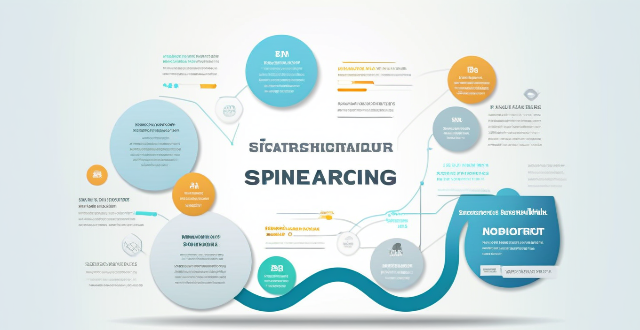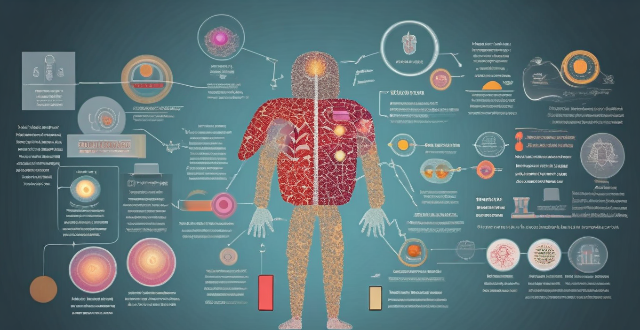Emotional Improved

How much exercise is needed to see emotional benefits ?
Engaging in regular physical activity is not only beneficial for your physical health but also for your emotional well-being. The question of how much exercise is needed to see emotional benefits is a common one, and the answer may vary depending on individual factors such as age, fitness level, and personal goals. However, there are some general guidelines that can help you determine the amount of exercise needed to experience emotional benefits. There are various types of exercise that you can incorporate into your routine, including aerobic exercise, strength training, flexibility exercises, and balance exercises. Regular exercise has been shown to have numerous emotional benefits, including reduced stress and anxiety, improved mood, better sleep, and increased self-esteem. According to the American Heart Association, the following guidelines are recommended for adults to achieve significant health benefits: - At least 150 minutes per week of moderate-intensity aerobic activity or 75 minutes per week of vigorous-intensity aerobic activity. - At least two days per week of strength training exercises involving all major muscle groups. - At least two to three days per week of flexibility exercises to maintain range of motion and prevent injury. - As needed, particularly for older adults or those with balance issues. It's important to note that individual needs may vary, and it's essential to listen to your body and adjust your exercise routine accordingly to ensure you're getting the most out of your workouts.

Are there specific workout routines designed for emotional stability ?
Emotional stability is an important aspect of overall well-being, and exercise can play a significant role in achieving it. Cardiovascular exercises like running, cycling, swimming, and dancing increase heart rate and blood flow, reducing stress and anxiety levels while releasing endorphins that improve mood. Strength training such as weightlifting or resistance band exercises build muscle strength and endurance, improving self-esteem and confidence while reducing symptoms of anxiety and depression by promoting the growth of new brain cells and increasing neurotransmitter levels. Yoga and meditation practices focus on mindfulness, breathing techniques, and relaxation, reducing stress levels and improving cognitive function, memory, and attention span. Incorporating these activities into your fitness routine can have a positive impact on your emotional stability and overall well-being.

How does exercise influence mood and emotional stability ?
Exercise has a positive impact on mood and emotional stability by releasing endorphins, reducing stress hormones, enhancing resilience, promoting mindfulness, and providing a sense of achievement. Incorporating regular exercise into your lifestyle can lead to better mental health and overall well-being.

What are the benefits of practicing simple yoga postures regularly ?
The text discusses the benefits of practicing simple yoga postures regularly, including physical health benefits such as improved flexibility and mobility, strengthened muscles, better posture, and increased stamina. It also covers mental and emotional well-being benefits like stress reduction, improved concentration, emotional balance, and mind-body connection. Additionally, the text touches on lifestyle integration, adaptability, and personal growth. Overall, the text emphasizes the positive impact of regular yoga practice on overall health and well-being.

What is the significance of emotional intelligence in educational psychology ?
Emotional intelligence (EI) plays a pivotal role in educational psychology, impacting student success and well-being. Key aspects of EI include self-awareness, self-regulation, motivation, empathy, and social skills. For students, high EI correlates with better academic performance, social skill development, mental health, and resilience. For teachers, it enhances classroom management, instructional strategies, student relationships, and professional development. Schools benefit from a positive culture, effective intervention programs, and increased parental involvement when focusing on EI. Integrating EI into education fosters a generation equipped for academic, emotional, and social success.

Does exercise influence emotional regulation and mental well-being, which in turn affects cognitive processes ?
The article explores the relationship between exercise, emotional regulation, mental well-being, and cognitive processes. It suggests that regular physical activity can positively impact emotional regulation by reducing stress levels, improving self-esteem, and providing a healthy outlet for negative emotions. Exercise also contributes to improved mental well-being by alleviating symptoms of depression and anxiety, promoting relaxation, and providing opportunities for social interaction. These factors, in turn, influence cognitive processes such as attention, memory, problem solving, and decision making. Overall, the article concludes that incorporating exercise into daily routines can have numerous benefits for overall health and well-being.

Can exercise be a substitute for medication in treating some forms of emotional distress ?
This article explores the potential benefits of exercise in treating emotional distress, such as anxiety and depression, and discusses whether it can be a substitute for medication. While exercise has numerous benefits for mental health, including stress reduction and improved sleep quality, it may not be suitable for everyone or replace medication in all cases. Factors such as symptom severity and individual differences should be considered when determining the best approach to managing emotional distress. Exercise should be viewed as part of a comprehensive treatment plan that includes medical care, therapy, and lifestyle changes tailored to the individual's needs.

What is the importance of emotional intelligence in sports leadership ?
Emotional intelligence is crucial for sports leadership, including empathy, communication skills, decision-making, conflict resolution, and motivation. Leaders with high EI can create a positive environment, make informed decisions, and inspire their team members to achieve success.

How do sports help in the emotional regulation of teenagers ?
Adolescence is a period of significant emotional, physical, and psychological changes. Sports can play a crucial role in helping teenagers regulate their emotions effectively by promoting physical health, developing social skills, building self-esteem and confidence, providing an outlet for emotions, and teaching discipline and responsibility. Encouraging teenagers to participate in sports is an investment in their overall wellbeing and future success.

How can women develop their emotional intelligence in the workplace ?
Emotional intelligence (EQ) is a crucial skill for success in the workplace, especially for women who often face unique challenges and biases. Developing EQ can help women navigate complex social dynamics, build strong relationships, and lead effectively. Here's how they can enhance their emotional intelligence: Self-awareness involves understanding your own emotions and practicing self-reflection. Self-regulation means managing your emotions and staying calm under pressure. Motivation includes setting goals and finding sources of inspiration. Empathy involves listening actively and showing compassion. Social skills entail improving communication and building relationships. Continuous learning means seeking feedback and engaging in training. By focusing on these key areas, women can enhance their ability to navigate the workplace effectively. Remember that developing EQ is an ongoing process that requires practice, patience, and a commitment to personal growth.

What is the relationship between exercise, sleep quality, and emotional well-being ?
The text explores the interconnectedness of exercise, sleep quality, and emotional well-being. It outlines how physical activity enhances mood through endorphin release and long-term health benefits. Sleep quality is crucial for emotional processing and resilience against stress. Mutual benefits exist between exercise and sleep, with each improving the other. A holistic approach to health includes attention to all three components for optimal well-being.

In what ways do sports help with emotional regulation in children ?
Engaging in sports can significantly aid children in developing emotional regulation skills by promoting stress reduction, enhancing self-esteem, developing resilience, encouraging teamwork and social interaction, teaching discipline and self-control, providing an outlet for energy, and promoting mindfulness.

Is there a difference in emotional management between casual and professional athletes ?
The text is a topic summary about emotional management in sports, focusing on the differences between casual and professional athletes. The article outlines key points related to self-awareness, self-regulation, and motivation for both groups. It notes that while both types of athletes must manage their emotions, professional athletes often have more structured approaches and greater motivation due to the high stakes involved in their careers. Casual athletes may benefit from adopting some of the emotional management strategies used by professionals but generally face fewer consequences if they fail to do so.

What are the benefits of group therapy for women with emotional disorders ?
Group therapy offers numerous benefits for women with emotional disorders, including increased social support, improved self-efficacy, and reduced symptoms of anxiety and depression. This form of treatment can be a powerful tool for promoting healing and personal growth.

In what ways does mental health support impact overall women's health ?
This text discusses the importance of mental health support for women's overall health, highlighting its impact on physical health, emotional well-being, relationships, and work performance. It emphasizes that good mental health can reduce the risk of chronic diseases, improve sleep quality, and help manage pain. Additionally, it mentions how mental health support can enhance emotional well-being by reducing stress, improving mood, and increasing resilience. The text also points out that mental health support can strengthen relationships through improved communication, better emotional regulation, and greater empathy. Lastly, it notes that mental health support can enhance work performance by improving focus, reducing absenteeism, and increasing job satisfaction.

What role does endorphin release play in the emotional benefits of exercise ?
The article discusses the role of endorphins in the emotional benefits of exercise. It explains what endorphins are, how they are released during physical activity, and their effects on mood, self-esteem, sleep quality, and stress reduction. The author emphasizes that consistent exercise can lead to a better emotional state by stimulating endorphin release.

Does exercising in nature provide additional emotional benefits ?
**Nature Exercise Benefits** - **Therapeutic Effects**: Reduces stress, enhances mood, offers cognitive benefits. - **Physical Health Impact**: Encourages physical activity, reduces injury risk. - **Social Interaction**: Fosters community building and family bonding.

In what ways do sports promote mental and emotional growth in individuals ?
The article discusses the role of sports in promoting mental and emotional growth. It mentions that participating in sports can improve self-esteem, confidence, social skills, resilience, perseverance, time management, organizational skills, and stress reduction techniques. The benefits of sports extend beyond the athletic field and contribute to overall personal development and success in various aspects of life.

How does exercise influence the brain's chemistry related to emotions ?
Exercise significantly impacts brain chemistry, enhancing emotionalExercise significantly impacts brain chemistry, enhancing emotional neurotransmitters like doin, promoting neuroplasticity through BDNF, and boosting self-efficacy and social interaction. Incorporating enjoyable physical activities into daily routines can lead to improved mental health.

How does exercise affect mood and emotions ?
Exercise has numerous positive impacts on mood and emotions, including the release of endorphins for a "runner's high," reduction in anxiety and stress by lowering cortisol levels, and improvement in self-esteem through goal setting and physical changes. Regular activity also enhances sleep quality by regulating sleep cycles and cognitive function by increasing blood flow to the brain. Social interaction during exercise provides emotional support and long-term benefits include prevention of depression and building resilience against stress.

How do sports psychologists incorporate exercise into their treatment plans for emotional disorders ?
Sports psychologists incorporate exercise into treatment for emotional disorders, leveraging its benefits on mental health. They assess clients' fitness and attitudes towards exercise, set realistic goals, and use individualized plans, behavioral techniques, and group activities to promote adherence and progress. This approach has been shown effective, as illustrated by a case example treating depression through structured, gradually intensifying exercise routines, leading to significant improvements in the client's mood and self-esteem.

What are the psychological benefits of participating in sports ?
Participating in sports can have numerous psychological benefits that extend beyond physical health. Here are some of the key advantages: - **Improved Mood and Reduced Stress**: Boosts endorphins, decreases cortisol levels, and helps to lower stress. - **Enhanced Self-Esteem and Confidence**: Achievement and mastery in sports boost self-esteem, while social interaction increases confidence. - **Better Sleep Quality**: Regular exercise leads to physical fatigue and relaxation, improving sleep patterns. - **Increased Resilience and Mental Toughness**: Overcoming adversity in sports builds resilience, while goal-oriented pursuits foster mental toughness. - **Social Support and Connection**: Teamwork and camaraderie provide a network of support, while shared experiences create bonds and friendships. - **Improved Cognitive Function**: Studies suggest regular exercise can lead to increased brain volume and improved cognitive function. - **Emotional Regulation and Coping Mechanisms**: Sports provide an outlet for expressing and managing emotions like anger or frustration, and athletes learn to cope with high-pressure situations. - **Positive Addiction and Avoidance of Unhealthy Habits**: Sports can become a positive addiction, replacing less healthy habits, and require time management, reducing idle time that could lead to unhealthy behaviors.

How does sports sponsorship influence the marketing strategies of competing brands in the same industry ?
Sports sponsorship has a significant impact on marketing strategies by increasing brand awareness, differentiation from competitors, creating emotional connections with consumers, and improving public relations. Examples include Coca-Cola's sponsorship of the FIFA World Cup, Nike's partnership with Michael Jordan, Gatorade's sponsorship of Serena Williams, and Adidas' participation in Run for Peace. These benefits help brands stand out in crowded markets and are likely to continue driving investments in sports sponsorship as part of overall marketing strategies.

Is there a connection between sports and improved mental well-being ?
The relationship between sports and improved mental well-being is evident in numerous studies, indicating that engaging in physical activities significantly contributes to an individual's overall psychological well-being. This connection can be analyzed from various angles, including physiological responses, social interactions, personal development, and the role of subjective class identity and health. Physiological responses to sports include endorphin release and stress reduction, while social interactions provide opportunities for teamwork and belongingness. Personal development through sports enhances self-esteem and discipline. The mediating roles of class identity and health also play a part in this relationship. Overall, sports participation positively affects individuals' subjective well-being through various mechanisms, enhancing their mental health and overall quality of life.

How can we use storytelling techniques to communicate climate science more effectively ?
Storytelling techniques can make climate science more accessible and engaging by creating emotional connections, simplifying complex ideas, humanizing data, and promoting sharing. Effective strategies include using case studies, visual narratives, characters, analogies, and interactive elements to enhance retention and inspire action. By harnessing the power of storytelling, we can foster a deeper understanding and emotional connection to the urgent issue of climate change.

What are the benefits of Smart Grid Technology ?
Smart grid technology offers numerous benefits including improved reliability, enhanced efficiency, increased sustainability, greater transparency and control for consumers, and improved security.

How can counseling help women dealing with infertility-related stress ?
Counseling is crucial for women dealing with infertility-related stress. It helps identify emotional distress, address mental health concerns, build resilience and coping strategies, navigate medical treatment options, and foster hope and healing. By providing emotional support and promoting self-care practices, counseling empowers women to face the challenges of infertility with strength and courage.

What are the benefits of having a well-structured knowledge framework ?
A well-structured knowledge framework offers benefits such as improved learning efficiency, enhanced understanding, increased application capabilities, and improved communication skills. By organizing information systematically, individuals can maximize their potential for success in various aspects of life.

How important is socialization in preschool ?
Socialization in preschool is crucial for children's development, helping them develop social skills, emotional intelligence, cognitive abilities, language proficiency, and confidence. It involves learning to interact with others, form relationships, and understand emotions. Benefits include sharing, cooperation, empathy, communication, emotional awareness, regulation, perspective taking, problem-solving, conversation skills, vocabulary expansion, self-discovery, and positive feedback. Prioritizing socialization in preschool programs sets children up for success in school and beyond.

What is the importance of sleep in the development of teenagers ?
Sleep is crucial for teenagers' physical, mental, and emotional development. It aids growth, strengthens the immune system, and helps with weight management. Adequate sleep improves memory, cognitive function, and emotional regulation. It also reduces stress, enhances social interaction, and boosts self-esteem. Parents should encourage good sleep habits to support their teenagers' healthy development.